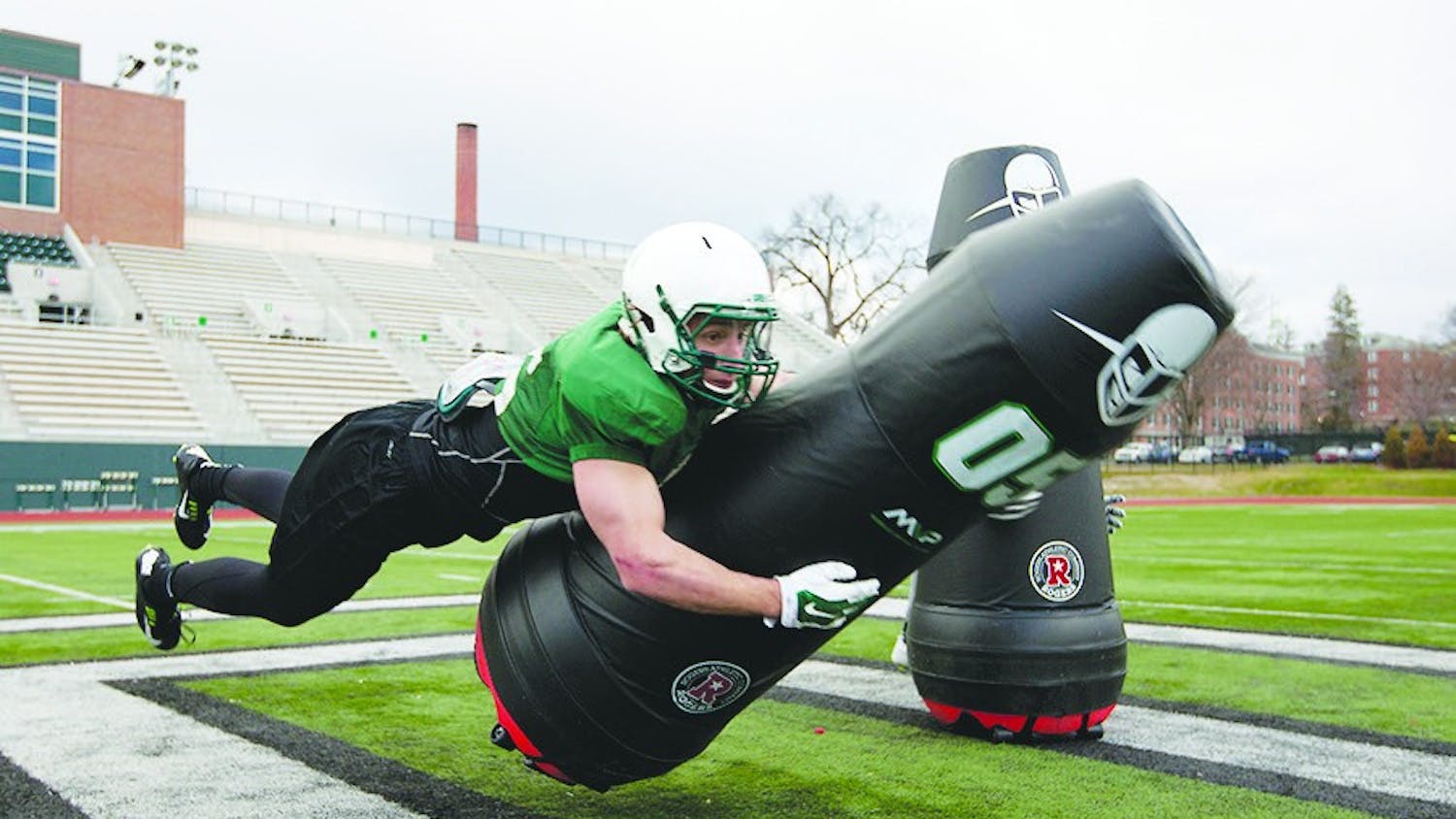To most, spring term means lots of rain, Green Key and relaxing afternoons on the Green with glimpses of sunlight if we’re lucky. To some self-identifying women in the Class of 2022 and beyond, however, spring term also represents the ever-daunting mystery that is sorority pre-rush.
In recent weeks, sororities have begun hosting events open to self-identifying women interested in rushing their houses, giving a sneak peak of the formal recruitment to come this fall. Pre-rush events spanned different activities, with Sigma Delta, for example, hosting a paint-your-own-pong-paddle event, Chi Delta inviting self-identifying women for bagels and brunch and other sororities also arranging various get-togethers for self-identifying women to meet the house’s sisters.
In my opinion, there are benefits to participating in sorority pre-rush; you get the chance to meet some affiliated upperclasswomen, gauge the vibe of each house and self-reflect on where you might personally fit in or want to rush. However, those positive aspects of pre-rush still don’t quite make the process flawless, especially for freshman who have never been exposed to it before. Over the past few weeks, ’22s I know have all been telling me similar things: Sorority pre-rush is confusing. It’s mysterious. It’s potentially misleading. And nobody seems to be able to quite explain rush perfectly.
Many freshmen, including myself, seem to have so many questions about both the pre-rush and the rush process, especially now that we’re encountering the beginnings of it. What is this computer system our names are placed into? Will I be at some kind of disadvantage if I don’t know many upperclasswomen? How do I even sign up?
Laurel Dernbach ’22 voiced some of these questions and concerns. Dernbach, who is not certain whether she will rush in the fall, said that she felt a bit overwhelmed by the whole process, especially because Greek life is so widespread on campus. Additionally, she mentioned that pre-rush events have led her to be more self-reflective and thoughtful about her Dartmouth experience than she had anticipated.
“Especially coming from the South, Greek life was one of the first things I looked at in colleges,” Dernbach said. “The fact that it’s around 70 percent of the student population at Dartmouth is kind of scary for me just because I’ve never been super set on the idea of participating in Greek life. It’s just not necessarily a very obvious choice for me.”
In looking back at her pre-rush and formal sorority rush experience, Rachel Florman ’21 agreed that the rush process can be incredibly stressful, even during the pre-rush stage. Florman, for whom Greek life was originally a downside of Dartmouth, shared her rocky experience during the rush process.
“Greek life at Dartmouth was probably the thing I was most afraid of and what I wanted to avoid the most before coming here,” Florman said. “I actually did end up rushing this past fall, and I’m now affiliated at Sigma Delta and feel very lucky, but I wasn’t planning on rushing until the last minute, and I considered dropping at every stage of the process.”
At least to me, it can sometimes feel that nearly everyone at Dartmouth is affiliated somewhere. According to the Dartmouth College Factbook, in the spring of 2018, 67 percent of the class of 2020 was Greek-affiliated, while the percentage was 71 percent for the class of 2019 and 70 percent for the class of 2018.
While these numbers mean that there is a huge chunk of Dartmouth’s population that is affiliated, they also mean that there are many who choose not to rush. Sophia Kinne ’20, for example, said that while she considered rushing her sophomore fall, she ultimately decided that rush wasn’t for her for a variety of reasons.
“For one, logistically I didn’t feel like I had time to go to rush events or do the rush training they make you do,” Kinne said. “Also though, the upperclasswomen that I was closest with and most influenced by who were all in my band had experiences in the Greek system that made them not really recommend it to me.”
Despite its imperfections, it doesn’t seem to me that the sorority rush process is likely to be eliminated anytime soon. As such, for self-identifying women undergoing pre-rush right now or considering rush in the fall, Florman and Kinne offered some advice.
First, Florman emphasized the fact that potential new members should ground themselves in self-understanding and self-identification before starting the rush process so as not to waver during the overwhelming, all-consuming experience that is rush. She also recommended relying on older women around campus who are likely to have more seasoned insight and advice about the process.
“There’s no harm in starting the rush process, but you need to be super certain that you know yourself and you know that your self-worth and self-value are not determined by women on this campus who don’t actually know you,” Florman said. “One of the most important things is to rely on dope older women on campus, both unaffiliated and in sororities, who are more than willing to guide you throughout the entire rush process.”
Kinne, looking back on her Dartmouth experience, said that the greatest advice she could give ’22s who are considering rush is to not place as much importance in one’s Greek identity as many do. Just because Greek life plays a role in your Dartmouth experience, she said, it certainly isn’t the one defining factor — if there even is one — that makes or breaks your Dartmouth experience.
“Try not to worry about what it’ll mean if you do or don’t rush, because if you rush and you don’t like it, then you can drop at any time, but if you like it, great,” Kinne said. “You can always change your path during the process, so I would say try not to get trapped into the idea that the rush process itself or where you end up will determine your entire Dartmouth experience.”


